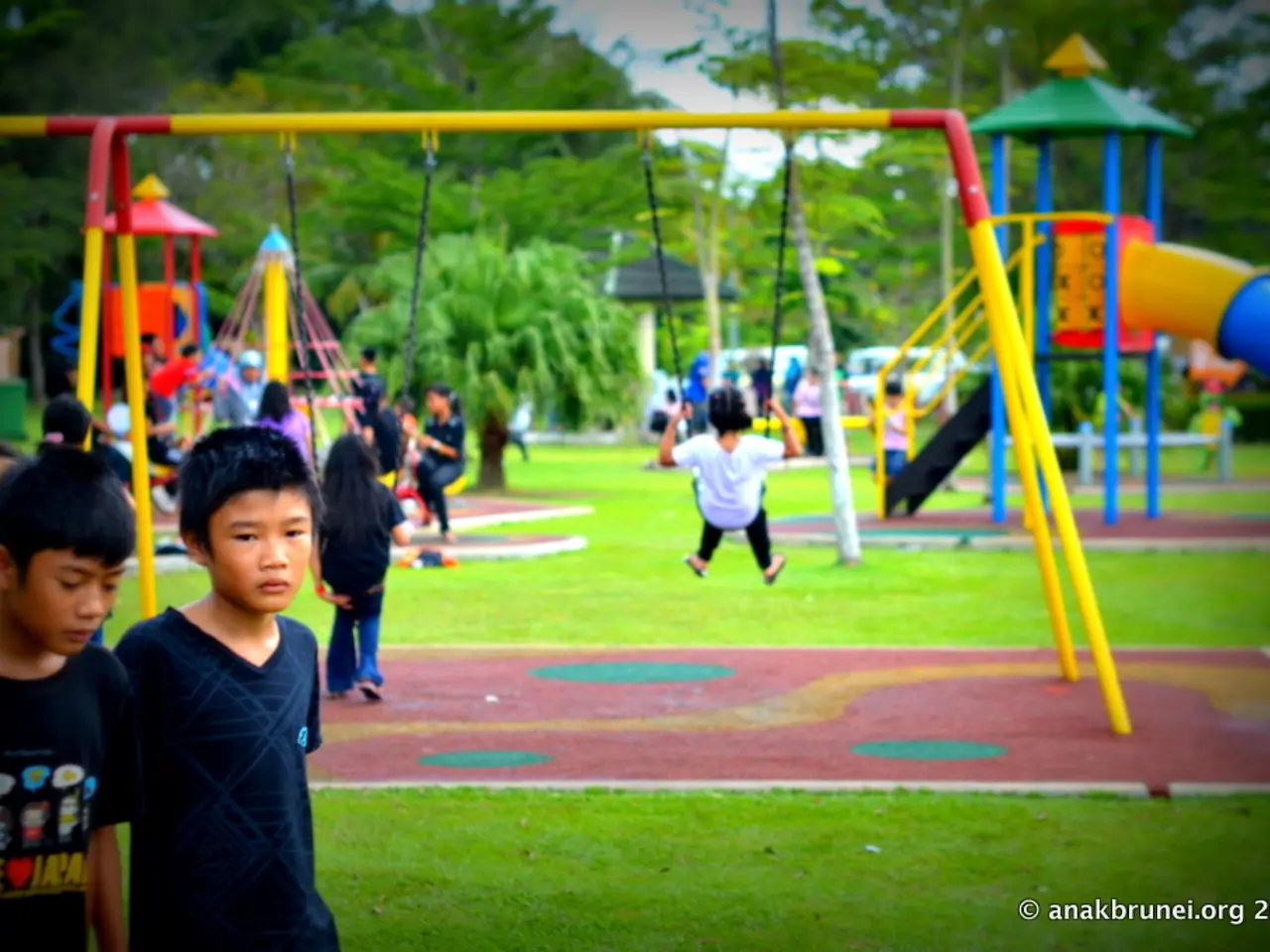Redefine children's relationship with nature: Initiate the change in schools
Promoting Nature Education for Children: A Crucial Step Towards Sustainable Future
In a world where the unstoppable rise of smartphones has mirrored an equally unstoppable decline in natural curiosity among children, the need for nature education has never been more pressing. According to a recent study, less than 10% of local children play in wild places anymore, with their roaming radius dropping by 90% in a generation.
To combat this trend, the author Roger Morgan-Grenville suggests that the greatest gift to the Earth is a new generation of Nature-literate young people. One effective approach to achieving this goal is by integrating immersive, hands-on outdoor programs that connect students directly with the natural world.
These programs can take various forms, including structured nature schools, outdoor classrooms, gardening projects, field trips, and experiential learning such as hiking, exploring biodiversity, and practicing survival skills in natural settings.
Key strategies for promoting nature education include establishing dedicated nature-based programs and curricula, providing drop-off nature school programs for different age groups, making nature education accessible outside traditional school grounds, and engaging the community in outdoor programs and environmental stewardship activities.
For instance, the Aldo Leopold Nature Center’s Nature School offers emergent-style curricula tailored to children’s natural curiosity and interests, fostering resilience, creativity, inquiry, and social-emotional learning rooted in nature experiences. Similarly, the Arboretum Foundation’s “Arboretum on the Move” brings nature education to local parks and public spaces near schools, making it accessible to underserved communities.
The benefits of nature education for children are substantial. It fosters environmental stewardship and conservation ethics, enhances cognitive, social, and emotional skills, increases awareness of ecological interdependence and sustainability, builds community and connection, and prepares children for future challenges.
However, the implementation of such programs faces challenges. For example, an undiluted Natural History GCSE approved by the Labour Government risks being watered down, getting lost between subjects, based on words rather than observation, and lacking funding for urban students to regularly experience the natural world.
Moreover, at the university level, there is a need for a restoration effort in declining specialist courses like botany, ornithology, and entomology. Politicians are in favor of this initiative, but the senior civil servants' support is yet to be confirmed.
Despite these challenges, many companies are likely to support this initiative, making it the easiest aim to achieve. Local wildlife trusts and educational grant-giving bodies can provide resources for teaching teachers and funding student field trips. School farm trips, which require funding, can spark a lifetime's inspiration for children.
Young London naturalist Kabir Kaul found embracing his passion for Nature to be a lonely experience due to peers preferring video games like Fortnite. The extension of the Forest School scheme and the reinstatement of plant-growing areas in primary schools are proposed solutions to encourage children's connection with nature.
In sum, promoting nature education through immersive, accessible, and community-engaged programs nurtures knowledgeable, resilient, and environmentally responsible individuals who will contribute to preserving life on Earth. As Chairman Mao's extermination of half a billion tree sparrows led to a famine that resulted in the death of 40 million people, it is evident that our interdependence with nature is crucial, and nature education is vital to the future of life on Earth.
References:
[1] Aldo Leopold Nature Center. (n.d.). Nature School. Retrieved from https://aldoleopoldnaturecenter.org/nature-school/
[2] Morgan-Grenville, R. (2021, July 23). The Future of Life on Earth Depends on Nature Education for Children. The Platform. Retrieved from https://www.theplatformmagazine.com/the-future-of-life-on-earth-depends-on-nature-education-for-children/
[3] The Arboretum Foundation. (n.d.). Arboretum on the Move. Retrieved from https://www.arboretumfoundation.org/arboretum-on-the-move/
[4] Village Montessori School. (n.d.). Outdoor Education. Retrieved from https://www.villagemontessorischool.co.uk/outdoor-education/
[5] North Country School. (n.d.). Environmental Education. Retrieved from https://www.northcountryschool.org/environmental-education/
- Incorporating environmental-science courses and practical outdoor programs in lifestyle choices can facilitate a deeper appreciation for nature among individuals, fostering conservation-minded habits and contributing to a sustainable future.
- Education-and-self-development initiatives, such as technologically innovative nature schools, can be essential in supporting the growth and knowledge of children, cultivating a new generation of environmentally aware and responsible citizens.




